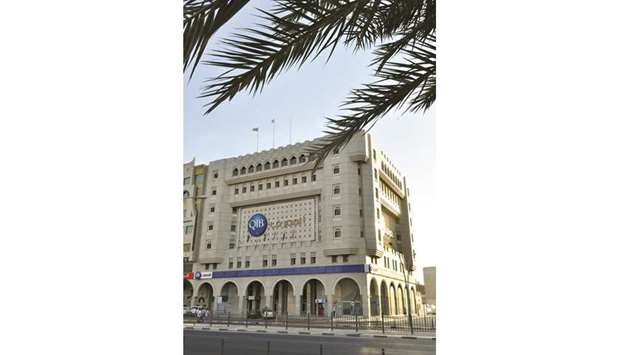Qatar Islamic Bank (QIB) has witnessed an 11% year-on-year growth in net profit to QR2.22bn in the first nine months of this year.
Total assets grew more than 1% to QR154.9bn compared to December 2018, driven by continued growth in the financing and investing.
Financing grew about 5% to QR107bn against December 2018. Customer deposits stood at QR106.6bn, registering a strong growth of 6% compared to December 2018.
Total income expanded 12% year-on-year to QR5.71bn with income from financing and investing registering a 13% jump to QR5.11bn, reflecting a healthy growth of core earnings.
Total general and administrative expenses were brought down by 4% year-on-year to QR827.8mn at the end of September 30, 2019.
Strict cost controls supported by higher operating revenues enabled further enhancement of efficiency, bringing down the cost-to-income ratio to 23.4% for the nine months ended September 2019 compared to 25.5% for the same period in 2018.
QIB was able to maintain the ratio of non-performing financing assets to total financing assets at 1.2%, reflecting the quality of its financing assets portfolio and its effective risk management framework.
The lender continues to pursue the conservative impairment provisioning policy with the coverage ratio for non-performing financing assets at 100% as of September 2019.
Total shareholders’ equity of the bank has reached QR16.4bn, registering a growth of 6.3% compared to December 2018 and a growth of 8.3% against September 2018.
Total capital adequacy, under Basel III guidelines, stood at 18.4% at the end of September 2019, which is higher than the minimum regulatory requirements prescribed by the Qatar Central Bank and the Basel Committee.
In June 2019, Fitch Ratings affirmed QIB at ‘A’ and Moody’s affirmed the long-term deposit ratings of the bank at “A1”. In May 2019, Capital Intelligence affirmed the bank’s long-term currency rating at ‘A+’ and in March this year; Standard & Poor’s affirmed QIB’s credit rating at ‘A-’.

QIB’s total income expanded 12% year-on-year to QR5.71bn with income from financing and investing registering a 13% jump to QR5.11bn, reflecting a healthy growth of core earnings
